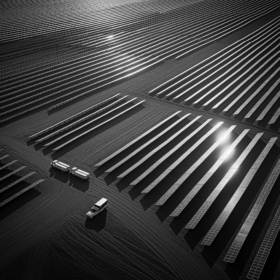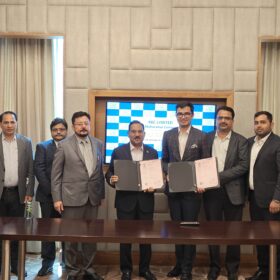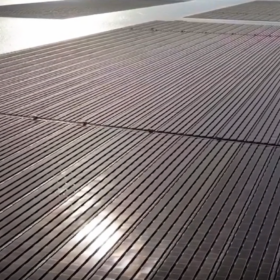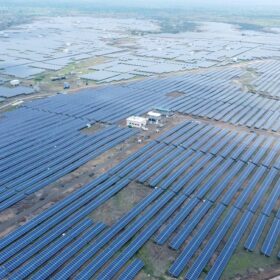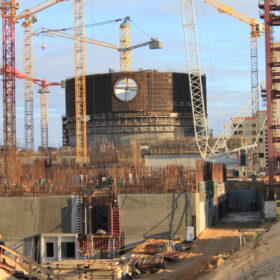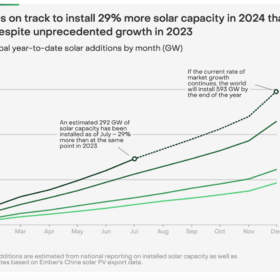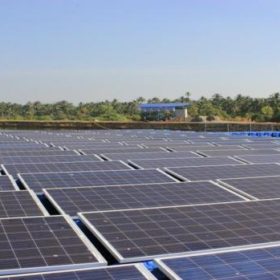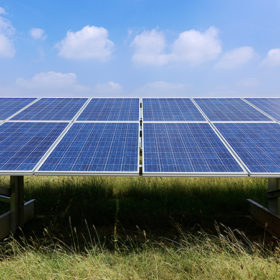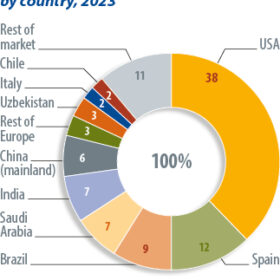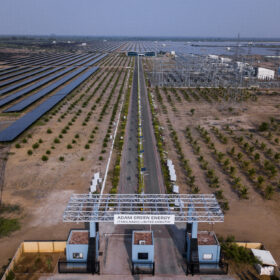Zelestra closes €132 million financing for its 435 MW solar plant in Rajasthan
Spanish developer Zelestra has raised €132 million financing for its 435 MW solar plant in Gorbea, Rajasthan. The financing has been signed with HSBC, Credit Agricole, MUFG and Bank of America.
Datta Infra secures INR 1,500 crore REC loan to develop 500 MW of renewable energy projects
Adyant Enersol, a wholly-owned subsidiary of Datta Infra, has signed an agreement with REC for financing of 500 MW of renewable energy projects.
Renewables share in India’s power generation mix to reach 35% by 2030: ICRA
Ratings agency ICRA projects the share of renewables (including hydro) in India’s power generation mix to rise to 35% by FY 2029-30, from 21% in FY 2024.
Godrej & Boyce commissions 25 MW ground-mounted solar project in Maharashtra
The project located in Dhule is spread over 52 hectares and will generate 45 million units annually
World now has five times more PV than nuclear power
According to the World Nuclear Industry Status Report 2024, the world had 408 operational reactors producing 367 GW in the middle of the year, which is significantly less than installed capacity predictions for solar by the end of the year and five time less the world’s cumulative PV capacity.
UK think tank predicts 593 GW of new global PV installations for 2024
UK-based energy think tank Ember says it expects 593 GW of solar to be added throughout the world this year – 29% more than in 2023. It says 292 GW were installed by the end of July.
NTPC Green Energy files draft papers for $1.19 billion IPO
The initial public offer (IPO) will comprise only a fresh issue of equity shares, with no offer-for-sale component included.
Tata Power Renewable Energy secures 400 MW hybrid wind, solar project from MSEDCL
Tata Power Renewable Energy Ltd has secured a Letter of Award to develop a 400 MW wind-solar hybrid project for power supply to the Maharashtra State Electricity Distribution Co. Ltd. The project includes original contracted capacity of 200 MW along with the greenshoe option for an additional 200 MW capacity.
Innovation driving change in solar tracker market
Shipment volumes are growing in the global solar tracker market as innovation in project development drives demand. Joe Steveni, of S&P Global Commodity Insights, takes a look at the factors shaping the commercial landscape for trackers, from agrivoltaics and undulating terrain to Indian ambition and the United States’ Inflation Reduction Act.
Adani to supply 6.6 GW of hybrid solar, thermal power to Maharashtra discom
Adani Power Ltd has secured a Letter of Intent from Maharashtra State Electricity Distribution Co. Ltd (MSEDCL) to supply 6.6 GW hybrid solar and thermal power. The 5 GW solar component of the contracted power will be supplied by Adani Green Energy from its renewable energy park in Khavda, Gujarat.
